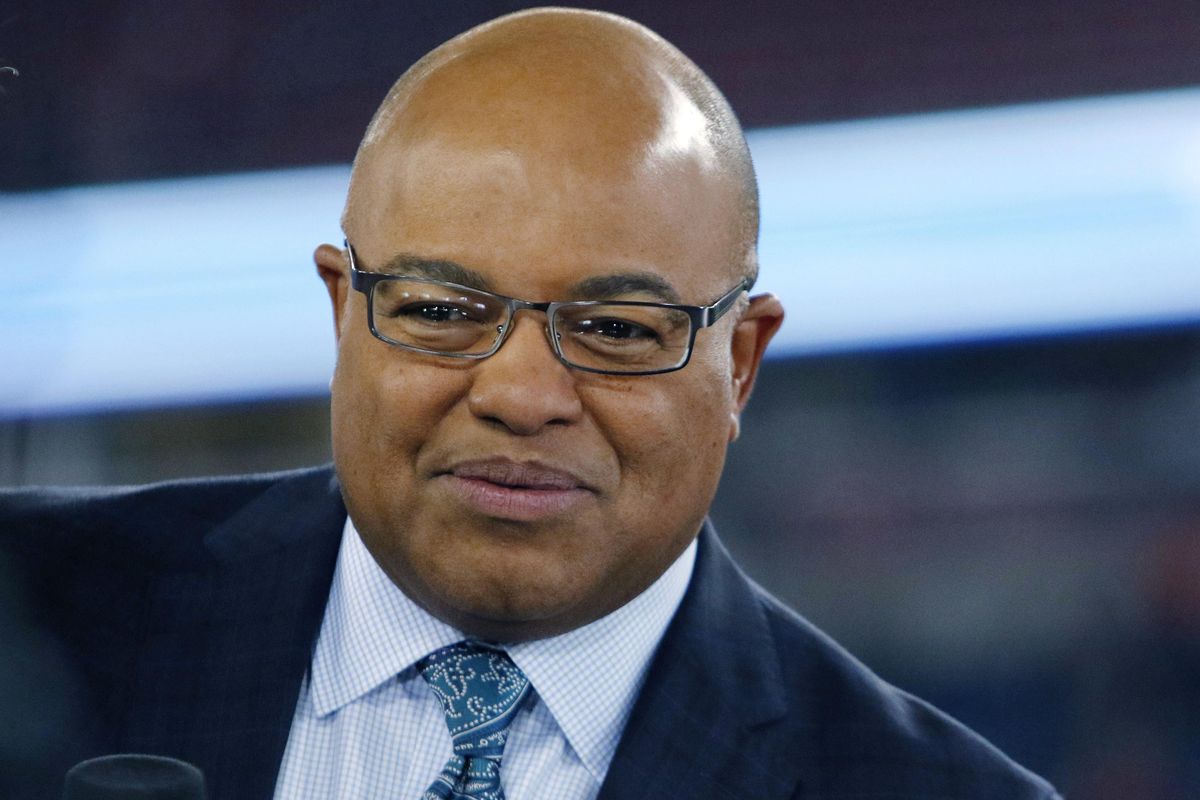NBC looks to make Olympic coverage omnipresent

NEW YORK – Fresh off the Super Bowl, NBC begins more than two weeks of Winter Olympics coverage Thursday with a new host, some new wrinkles and the hope that its business model keeps pace with the ways people experience events on television and online.
Some skiing and figure skating competition takes place Thursday in South Korea. NBC will stream the Olympic opening ceremony from Pyeongyang live early Friday in the United States, then repeat it that evening for television viewers with Mike Tirico and Katie Couric as hosts.
NBC parent Comcast Corp. placed a $963 million bet – the Pyeongchang rights fee – on Americans wanting to take a breather from arguments in Washington to watch athletes prospect for gold on snow or ice.
“This is a wonderful opportunity to be apolitical in a time when that’s been very difficult to do,” said Couric, who’s making a return to NBC for the Olympics.
That may be a tough sell. There’s always more attention paid to summer Olympics than the winter sports, and distant locations tend to depress interest, too. “It definitely feels like it’s more quiet, more subdued, than previous Olympic seasons,” said Ashwin Navin, CEO of Samba TV, an analytics firm that measures television viewing.
Adam Schwartz, an analyst for Horizon Media, said he’s noticed a lack of enthusiasm among many advertisers, some related to curiosity over how the time zone difference will play out (Pyeongchang is 14 hours ahead of the eastern United States). NBC has already estimated it has booked more than $900 million in national advertising.
“Outside of (American skier) Lindsey Vonn, there hasn’t been much buzz,” Schwartz said.
Tirico, formerly of ESPN, replaces Bob Costas as host of NBC’s prime-time coverage and already he’s being asked to put in more hours. For the first time, NBC will air its evening coverage live across the country, meaning the broadcast that starts at 8 p.m. on the East Coast starts at 5 p.m. out West. With a half-hour break for local news, Tirico will stay on the air each evening until 2 a.m. Eastern time – the end of prime-time out West.
NBC believes the time zone difference will serve the American audience well. Since prime evening viewing time coincides with daylight hours in South Korea, it means more live events than usual when most viewers are available.
NBC’s coverage team is well stocked with veterans; essayist Jimmy Roberts is covering his 17th Olympics and Mary Carillo is on her 14th.
Yet there are some notable changes for Olympic followers. The colorful team of Tara Lipinski and Johnny Weir take over as lead analysts for figure skating, replacing Scott Hamilton and Sandra Bezic. Hockey announcing legend Mike “Doc” Emrick, who doesn’t want to make the long journey, will be missed. Former Olympic skier Bode Miller and speed skater Joey Cheek will be new analysts.
In addition to the return of Olympic enthusiast Leslie Jones of “Saturday Night Live,” NBC will add a couple of left-field choices for cultural correspondents in race car driver Dale Earnhardt Jr. and Momofuku restaurant founder David Chang.
NBC’s prime-time coverage is the window through which most Americans experience the Olympics, but it’s only a fraction of what is offered. All the competition will be streamed online, and coverage is also available on the NBCSN sports cable network, CNBC, USA and the Olympic Channel. NBCSN even airs different Olympics coverage during prime time and, coupled with the online options, gives couch-bound viewers the chance for a multi-screen experience.
The options are great for consumers, but present a challenge to NBC.
Traditionally, the success of the Olympics from a business and public perception standpoint is measured by the ratings for NBC’s prime-time broadcast. NBC is virtually certain to see a smaller audience than Sochi four years ago, simply because people are watching less live TV than they used to. To illustrate: a sampling of 10 current programs that were also on the air four years ago shows all have lost viewers, ranging from 5 percent (CBS’ “Blue Bloods”) to 59 percent (NBC’s “Blacklist”).
So NBC will try to change the story by releasing each day an estimate of how many people experienced the Olympics over all of its platforms, not just the prime-time ratings.
“A viewer is a viewer,” said Dan Lovinger, NBC’s executive vice president of sports advertising sales. “If they’re passionate about the Olympics, it doesn’t matter whether they’re on NBCSN, on the broadcast network or digital. We just have to find ways to put it all together, and that narrative has definitely changed. It’s changed drastically.”